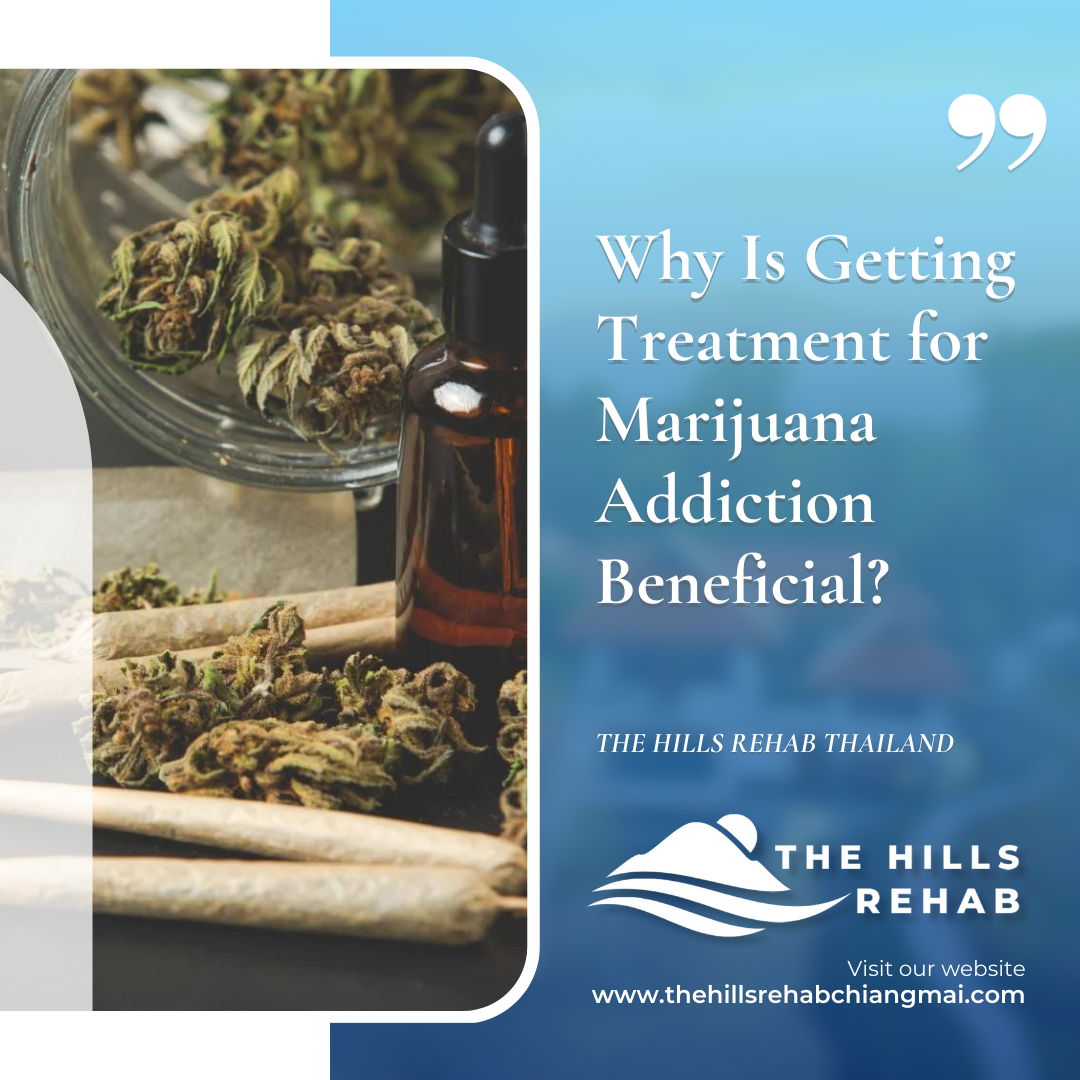The United Nations reports that there are over 200 million people around the world using marijuana, and it is the most commonly used drug in many Western countries, such as the U.K., the U.S., and Australia. Research has also shown that the number of users has been steadily increasing since 2009, especially during the COVID pandemic.
Marijuana is a drug that many people use without considering the consequences, not realizing that using marijuana use can lead to marijuana addiction and other negative effects on the body in some cases. There is effective, evidence-based marijuana addiction treatment that can help you or a loved one in a variety of ways. Treatment for marijuana addiction will help the person suffering from marijuana addiction learn about the effects of the drug, how to avoid it and the triggers in the future, and what resources are available for recovery support.
If you or someone close to you is struggling with a marijuana abuse situation, it is critical that help is sought as soon as possible. There are several inpatients or residential programmes that can provide you with the resources and support you need to navigate the difficult road to sobriety.
What Is Marijuana
Marijuana is one of the world’s most abused drugs. Some people believe that because it is legal in some areas, it must be safe. Marijuana is derived from the Indian hemp plant, and the “drug” is found primarily in the flowers (commonly referred to as “buds”) and much less in the plant’s seeds, leaves, and stems. Marijuana is a dried mixture of the hemp plant’s leaves, stems, flowers, and seeds that is sold. Its colour is usually green, brown, or grey. Hashish is a dried tan, brown, or black resin that is pressed into bars, sticks, or balls. Both marijuana and hashish emit a distinct, sweet odour when smoked. Marijuana and hashish contain over 400 chemicals. THC (short for tetrahydrocannabinol) is the chemical that causes intoxication and is responsible for the mind-altering effects that make marijuana a “drug.”
How Is Marijuana Used
Marijuana is typically smoked in the form of a cigarette, also known as a joint. It can, however, be used in a variety of other ways that are considered recreational marijuana use rather than medical marijuana delivery. The other ways marijuana is used are through blubbers or mini bongs, vaping, dabbing, oral ingestion, tinctures, spraying, and topical oils on the skin.
Is Marijuana Addictive
Some people become addicted to marijuana. The most common type of marijuana addiction is psychological rather than physical. The euphoric sensation of being high or “stoned” is addictive. This high sensation can be caused by the chemicals in marijuana or by a person’s expectations of what smoking will do to them.
Knowing Someone Is on Marijuana
Marijuana can be found in the urine, saliva, or blood. A hair follicle test can also be used to detect the drug. All of these tests are carried out with sophisticated equipment capable of detecting the presence of THC, which is what causes marijuana to be addictive. Weight loss, burns on the fingertips or lips, and a lack of motivation are all visible signs of marijuana use.
The Signs of Marijuana Abuse
Marijuana addiction is a rising issue all around the world. Many people suffer from it, and they cannot seem to break free without professional help. Marijuana abuse symptoms include any or all of the following:
- Tolerance to cannabis (requiring more and more of the drug in order to get high)
- Symptoms of withdrawal when not using marijuana (such as intense cravings, irritability, anxiety)
- Loss of interest in other activities (socializing, hobbies)
- Continued use of marijuana despite being aware of its negative consequences
Marijuana Short-Term Effects
- Problems with short-term memory
- Severe anxiety, including the fear of being observed or followed (paranoia)
- Unusual behaviour, such as seeing, hearing, or smelling things that aren’t there, and being unable to distinguish between imagination and reality (psychosis)
- Panic attacks
- Hallucinations
- Sense of personal identity loss
- Reduced reaction time
- accelerated heart rate (risk of heart attack)
- Risk of strokes
- Coordination problems (impairing safe driving or playing sports)
- Sexual issues (for males)
- Sexually transmitted infections are up to seven times more likely to occur as opposed to non-users (for females)
Marijuana Long-Term Effects
- IQ decrease (up to 8 points if prolonged use started in adolescent age)
- Poor academic performance and a greater likelihood of dropping out
- Impaired reasoning and learning and performance of complex tasks
- Reduced life satisfaction
- Addiction (9% of adults and 17% of people who began smoking as teenagers)
- Possibility of opiate addiction
- Intimate partner violence, relationship issues
- Stealing money or lying are examples of antisocial behaviour.
- Financial problems
- Increased reliance on welfare
- Increased likelihood of being unemployed or not getting good jobs.
The Symptoms of Marijuana Addiction
Marijuana addiction is difficult to overcome, and users become addicted for a variety of reasons, most of which are related to the person’s mental state or personality. Some users, such as those with a family history of drug abuse, may be more prone to addiction than others. The symptoms of marijuana addiction include decreased cognitive ability, loss of appetite, and, in some cases, anxiety and paranoia.
When a person who has been using for a long time stops using, they frequently experience withdrawal symptoms. These severe withdrawal symptoms may include seizures, depression, insomnia, and other sleep disorders.
Marijuana Addiction Treatment
Marijuana withdrawal symptoms may occur as a result of physical dependence where a person has been using marijuana for an extended period of time and has developed a tolerance to the effects. They need to continue the use of marijuana in order to avoid the uncomfortable withdrawal symptoms. These marijuana withdrawal symptoms include anxiety, irritability, headaches, and insomnia. Marijuana addiction treatment may include the use of one or more psychiatric medications to alleviate withdrawal symptoms.
Marijuana addiction treatment can be completed in a private setting, allowing those suffering from an addiction to remain anonymous and fully focused on their recovery. For those who struggle with addiction, such as the use of drugs or alcohol including marijuana, is often a source of shame and embarrassment.
Seeking treatment for addiction in a private setting in a residential marijuana addiction treatment programme, can be beneficial because the individual does not have to worry about being judged or feeling embarrassed. Private inpatient rehabs, such as The Hills, provide an individualised approach to marijuana addiction treatment that can help those who are struggling with this and other addictions. If you or a loved one would like to learn more about our treatment methods or options for marijuana addiction treatment, our knowledgeable staff is here to help and we are just a phone call away.





